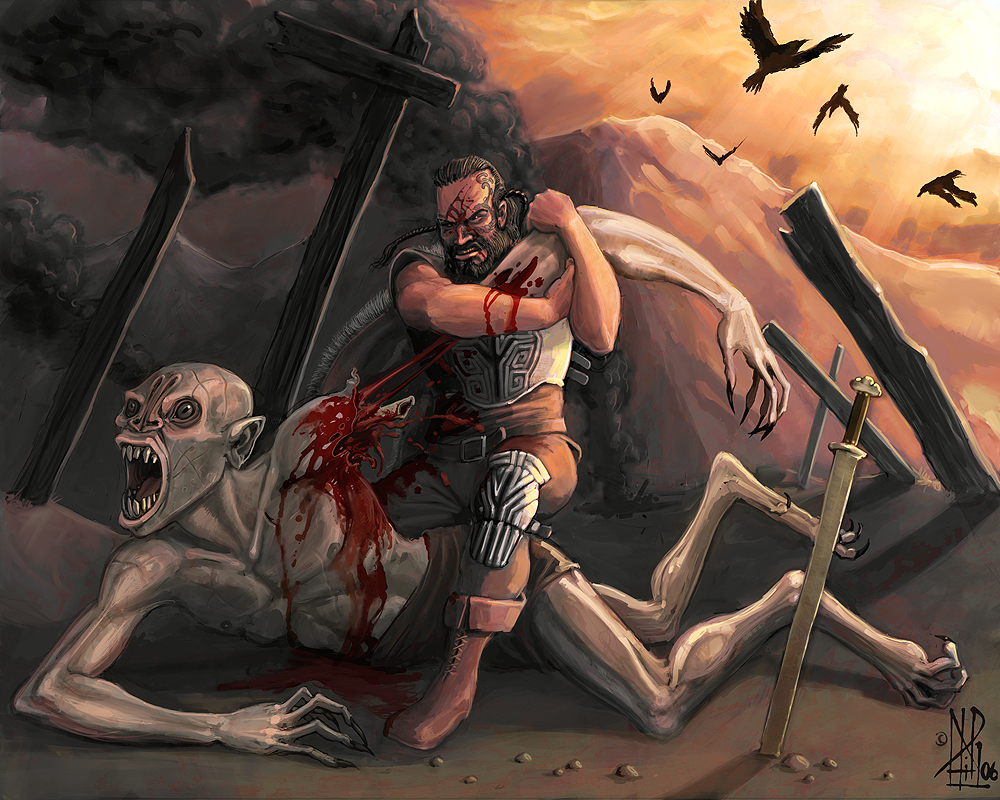"If at first you don't succeed, try and try again." Let's revisit yesterday's quiz.
Short answer (12points)
1.
“Whale-road” is an example of a:
2.
A term describing an ironic understatement:
"the terror-monger" - line 2137
"overseer of men" - line 2527
Ex. for death - "in a place beyond" - line 2590
A poetic way (or nice way) of saying something impolite (or bad).
A repetition of the beginning sounds of words - usually consonants.
II. Short essay (5points):
What makes Beowulf an Epic Hero? Make at least three points.
Characteristics of the Epic Hero:
· Larger-than-life leader or warrior
· Strongly identified with a particular people or society
· Performs great deeds in battle or undertakes extraordinary journey
· Sometimes possesses supernatural ability or has gods or other supernatural beings to help him or her
· Sometimes of noble birth (aristocrat or royalty)
· Possesses a sense of honor or code of ethics that rule his/her destiny
· Shows loyalty to his people
· Has various motivations (personal quest, revenge, helping people, glory)
· Almost always wins battles, but one monster may be his or her downfall
· May receive help from friends or guides, sometimes has a “sidekick”
Examples: Odysseus, Beowulf, Gilgamesh, King Arthur, Batman, Luke Skywalker
Joseph Cambell's Hero's Journey:
Or is it?
"If at first you don't succeed, try, try again. Then quit. There's no point in being a damn fool about it."


No comments:
Post a Comment